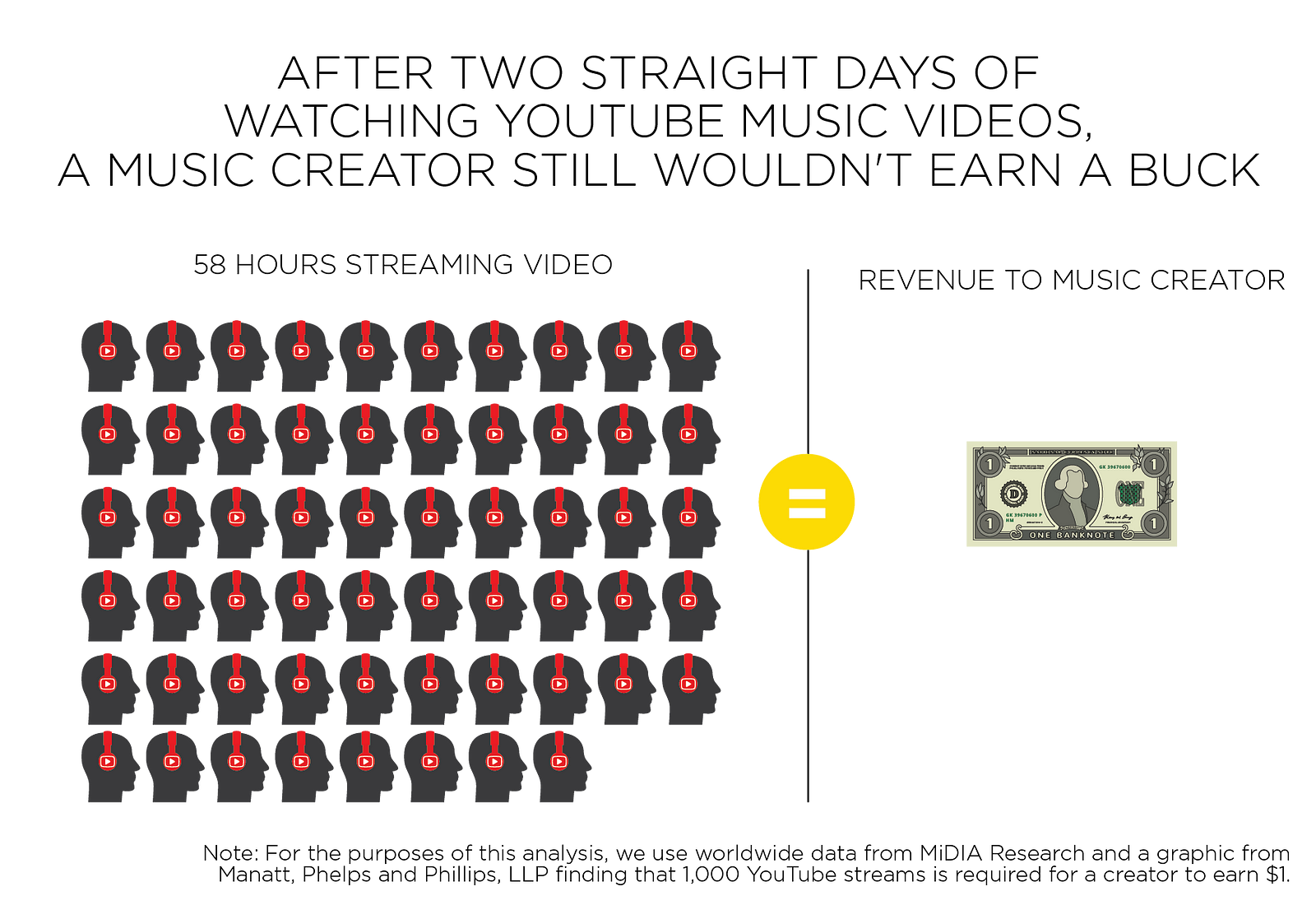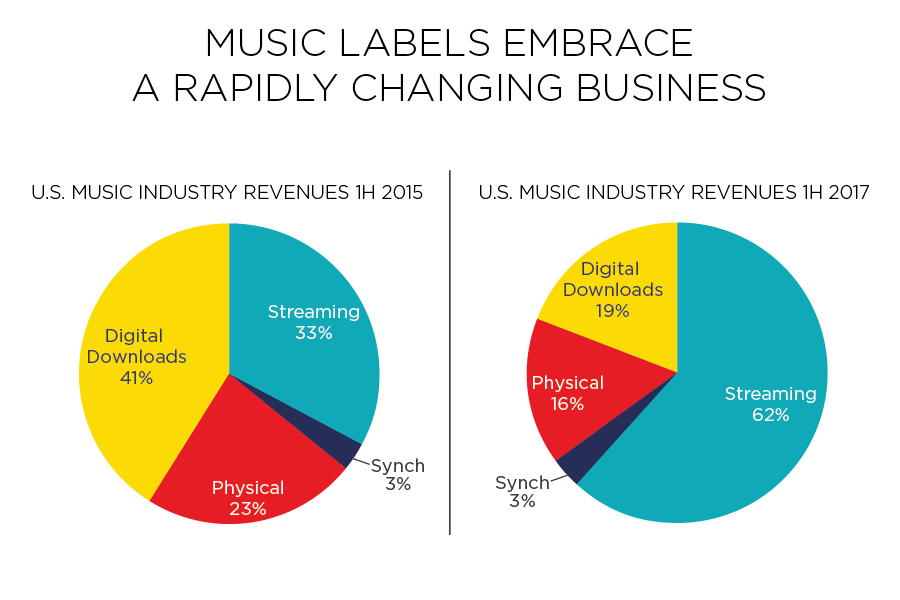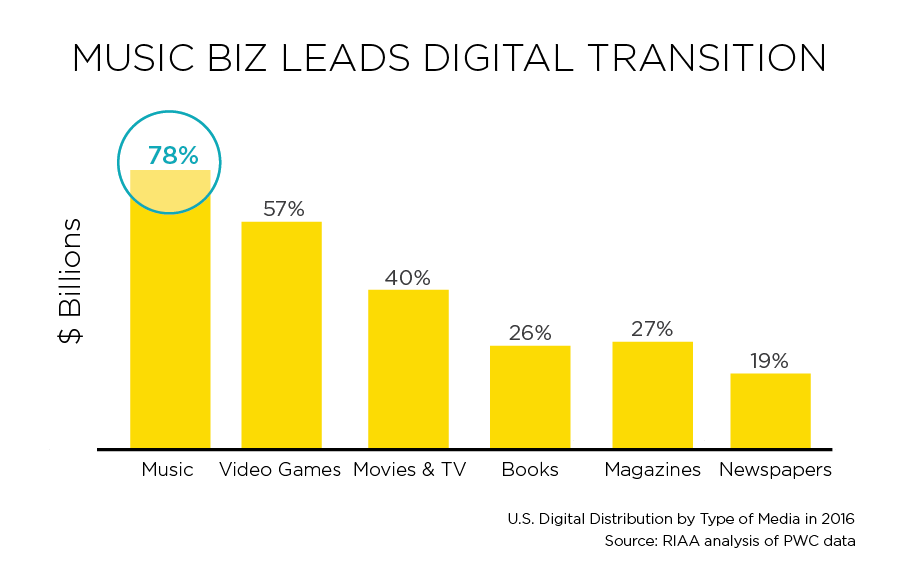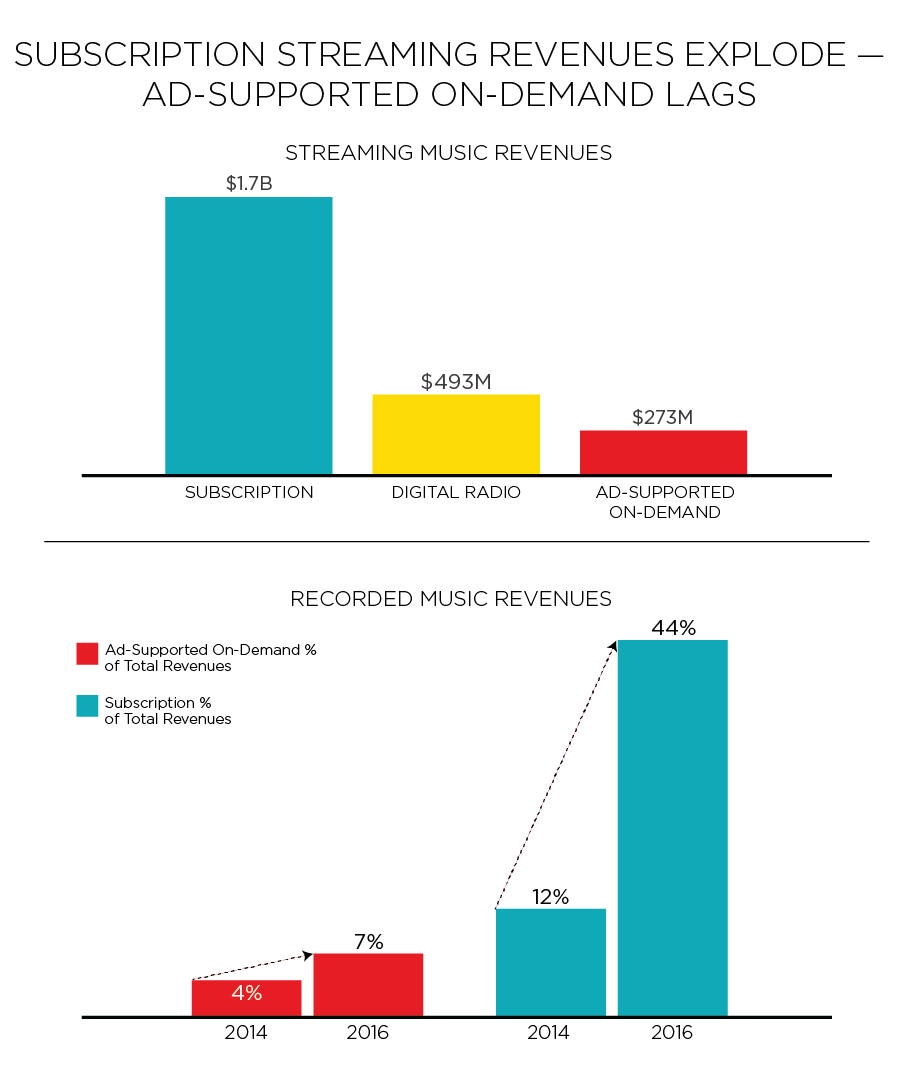Within a former railroad depot-turned-restaurant, on the edge of the Downtown Arts District in Los Angeles, an ensemble entertains diners with a joyous mix of gypsy jazz, blues and Americana styles, playing fiddles, mandolin, trumpet and more.
The group, called The Vignes Rooftop Revival -- named for an early session atop the roof of a nearby artist’s loft -- is more than just a popular local band. With a revolving lineup of up to 15 musicians, the Los Angeles act also is a flourishing small business.
Commuting to gigs in the Arts District by foot, bicycle and skateboard, the group has built a solid clientele of venues, including Eat Drink Americano, the restaurant on the railroad siding. During a break in their set, band members engage a visitor in conversation, explaining how they honed both their musicianship and music business smarts just a few miles away at the Thornton School of Music at the University of Southern California.
“Musicians today need to understand how to survive in a way that does not compromise their music,” says guitarist-trumpeter Erik Miron, 30, who graduated from USC Thornton in 2009. An understanding of business helps, he says, as long as “it remains in service to the art.”
Across the nation, from Los Angeles to New York, Miami to Nashville, colleges and universities with music programs are preparing students for a new era of entrepreneurship. Gone are the days when aspiring artists simply sought to “sign a deal” to launch their careers. For young musicians and those seeking music careers behind the spotlight, the availability of higher-education music business programs has never been greater. These 15 schools are at the top of their class.
The Vignes Rooftop Revival, featuring alumni of USC's Thornton School of Music, travels to gigs by bike and skateboard. From left are three group members: Patrick Torrez, Bergen Moore and Miron.Jeremy Copeland
The Mike Curb College of Entertainment and Music Business (Belmont University, Nashville)
Just south of Nashville’s famed Music Row, Belmont University in April opened the Gallery of Iconic Guitars, where students can experience the varied tones of nearly 500 vintage stringed instruments. It’s the latest example of the hands-on approach to a music business education at Belmont’s Curb College. The university’s sponsorship of Ken Burns’ forthcoming documentary,
Country Music, has created internship opportunities for Curb students with Burns’ Florentine Films, while a foundation of the National Music Publishers’ Association has provided a $50,000 endowment for Curb’s songwriting program. Last fall, the school awarded its first Women Creators’ scholarship, endowed by
Miranda Lambert.
Campus Speaker: John Zarling, Curb alumnus and executive vp marketing and new business, Sony Music Nashville
Berklee College of Music (Boston, Mass.)
Although Berklee’s campus is bustling -- Apple Music’s David Dorn was a recent speaker -- its reach extends well beyond its home base in Boston. On Sept. 5, the school announced Berklee NYC would be based at the former Power Station studio in Manhattan. The Berklee Popular Music Institute sends student artists to perform at music festivals, including Lollapalooza and Outside Lands. A fellowship established by Paul Wachter, financial adviser to Jimmy Iovine and
Bono, allows students to work with Wachter in Los Angeles. And the Berklee campus in Valencia, Spain, offers a master’s degree in global entertainment and music business. The new Berklee Empowerment Initiative, launched in June, seeks to create more pathways for young women to achieve and sustain careers in the music industry.
Alumni: Neil Jacobson, president, Geffen Records; Rani Hancock, president, Sire Records
Latin jazz trio MIXCLA, featuring Berklee College of Music alumni Gerson Esteban Lazo-Quiroga (left), Zahili Gonzalez Zamora and Takafumi Nikaido (not shown) performed during Berklee’s free Summer in the City concert series.Salim ALi
Hofstra University (Hempstead, N.Y.)
This spring, Hofstra’s Center for Entrepreneurship launched Mane Records, a student-run label that offers participants experience recording at studios in New York (30 miles west of campus) as well as producing, promoting and distributing music under the mentorship of industry professionals. The Hofstra University chapter of the Music and Entertainment Industry Student Association recently held its annual conference, offering panels on publishing, live music, record labels and songwriting and studio production.
Faculty: Terrence Tompkins, who is experienced in A&R, management and festival booking, arrives this fall as the new coordinator of Hofstra’s music business program.
Los Angeles College of Music (Pasadena, Calif.)
LACM’s campus in Pasadena is set apart from the rush of Los Angeles but easily accessible to the city’s music and film industries. Toto keyboardist-composer Steve Porcaro and film composer
James Newtown Howard (who won a 2009 Grammy Award for his score to
The Dark Knight) came to LACM this spring for conversations with students.
Alabama Shakes producer
Blake Mills, producer-songwriter-guitarist Matt Beckley and
Papa Roach drummer Tony Palermo are among several musicians who have presented master classes. The school recently launched a student-run label, 370 Music Group, with plans to propel young artists into the music market.
Faculty: Geoff Mayfield, former Universal Music Group vice president and former director of charts for Billboard, began teaching at LACM in 2016.
Los Angeles Film School (Los Angeles, Calif.)
Students at LAFS collaborate in professional, project-based environments. The school offers bachelor and associate of science degrees in music production (with the option of online classes), recording arts, entertainment business, animation, graphic design and film. Courses of interest to music business-minded students include sequencing technologies, musical arrangement, business management, mixing concepts and techniques. The school is based in the historic RCA Building on Sunset Boulevard, which houses a studio where
Elvis Presley,
The Rolling Stones and
Henry Mancini once recorded.
Alumnus: Ari Levine, a member of The Smeezingtons, with Philip Lawrence and Bruno Mars.
Beverly Keel, chair of the department of the recording industry at MTSU, led a discussion on changing the view of women in country music at Nashville’s Bluebird Cafe in 2016. From left: Keel, CMT’s Leslie Fram, Reba McEntire and Rounder Records’ Tracy Gershon.Carly Brandt
Middle Tennessee State University (Murfreesboro, Tenn.)
MTSU is 40 miles southeast of Nashville, but holds the country music business close. This year, the school created a new bachelor’s degree in audio production to complement its undergraduate degree in the recording industry, its music business MBA and its MFA in recording arts and technologies. The school’s radio station, WMOT, recently switched from a jazz format to Americana -- the first such outlet in Nashville. MTSU co-sponsored the first international conference on the music of
Prince with the University of Salford in Manchester, England, and partnered with the Nashville Songwriters Hall of Fame and Nashville Public Television to host a show called
The Songwriters, hosted by College of Media and Entertainment dean Ken Paulson.
Campus Speaker: Crissy Collins, a solo artist and backup singer for Beyoncé, conducted a three-day workshop for students.
Clive Davis Institute of Recorded Music (New York University Tisch School of the Arts, New York)
How did Tisch follow up its 50th anniversary celebration during the 2015-16 school year, which included a residency by
Pharrell Williams? By continuing to boost offerings at the Clive Davis Institute of Recorded Music. A study abroad program in Berlin was one addition this year to enhance the institute’s pop music curriculum. The school presented a discussion of entrepreneurship with
Better Than Ezra vocalist Kevin Griffin, moderated by Davis Institute chairman Jeff Rabhan.
Alumna: Maggie Rogers reached No. 4 on Billboard’s Heatseekers Albums chart in March with her debut, 'Now That the Light Is Fading.'
Steinhardt School of Culture, Education and Human Development (New York University, New York)
Steinhardt’s music business program -- which enrolls 160 undergraduates and 80 master’s students -- melds the performance training of a conservatory with industry perspective through courses at NYU’s Stern School of Business. This summer, the school hosted Sound Development: NYC, a full-day conference created by the Mayor’s Office of Media and Entertainment to explore the intersection of music, tech, entertainment and real estate. Steinhardt’s student-run Village Records is in its 22nd year, and the music program has now hosted its Songwriters Hall of Fame Master Sessions for six years. NYU’s location assures an array of New York internships, and most students complete music-related studies abroad.
Faculty: Marcie Allen, president of music marketing agency MAC Presents, is an adjunct instructor at Steinhardt.
WerdeHeather Moore
Pepperdine University (Malibu, Calif.)
On Pepperdine’s oceanside campus in Malibu, the university’s Institute for Entertainment, Media and Culture is a multidisciplinary program that seeks to train new entertainment industry leaders with courses in law, business and the creative arts. This fall, Pepperdine’s school of law is introducing a new master of laws degree in entertainment, media and sports. Courses in intellectual property and music law also are available as electives to students in the university’s Graziadio School of Business.
Herb Alpert and vocalist
Lani Hall are among the performers booked this fall at campus venue Smothers Theater.
Alumnus: Edward Arrow, senior vp copyright, Universal Music Publishing Group
Bandier Program for Music and the Entertainment Industries (Syracuse University, Syracuse, N.Y.)
The Bandier program marked two milestones in 2017. In March, the university announced that the program, as of 2018, would become part of the highly regarded S.I. Newhouse School of Public Communications, expanding study options available to its exclusive enrollment of some 25 students per year. And in August, the program named former Billboard editorial director Bill Werde as its new director. The Bandier program maintains close ties to the music industry -- including its namesake, Sony/ATV Music Publishing chairman Martin Bandier, who endowed the school.
Alumni: Michael George, artist manager, SB Projects; Drew Taggart, artist, The Chainsmokers
Kaskade (right) spoke with journalist Steve Baltin as the inaugural guest in January on Office Hours, a livestreamed series co-produced by the UCLA Herb Alpert School of Music.Susana Capra
Herb Alpert School of Music (University of California Los Angeles, California)
Among the courses recently added to the Herb Alpert School’s curriculum are “Between Art and Commerce in the Record Industry,” taught by Bob Hurwitz, chairman emeritus of Nonesuch Records, and “Music and Entrepreneurship,” led by music and tech executive Dae Bogan. Coming in 2018-19 is a hybrid degree program that combines studies in musicology and the music business. In 2016, EDM superstar
Paul Oakenfold was the judge of a DJ competition staged by the school.
Alumnus: Eric Polin, senior vp music publishing, Universal Pictures
Frost School of Music (University of Miami, F.L.)
Frost School, located in the capital of the Latin music business, recently launched online graduate-level certificates in music business and entertainment industries, and arts presenting and live entertainment management. The 80 undergraduates majoring in music business can work at student-run record label ’Cane Records, publishing company Cat 5 Music and radio station WVUM. New this year were master classes featuring Pandora head of publisher licensing and relations Adam Parness, Sony Music Entertainment chief information officer Miles Braffett and RIAA senior vp business and legal affairs Susan Chertkof.
Faculty: Serona Elton, a longtime executive at EMI Recorded Music, is an associate professor and chairman of music media and industry at Frost.
University of North Texas College of Music (Denton, T.X.)
Forty miles north of Fort Worth, Denton is the hometown of musicians as varied as funk pioneer
Sly Stone and jazz saxophonist Herschel Evans, and the site of UNT. Last fall, the university’s College of Music expanded its curriculum with a new focus on entrepreneurship and music, offering internships, frequent guest speakers, targeted career advising and networking opportunities. In April, students shared $18,000 in prize money awarded in the first UNT Music Entrepreneurship Competition. During the coming school year, Emmy Award-winning composer Bruce Broughton will serve as UNT’s composer-in-residence.
Alumna: Grammy-winning singer Norah Jones returned to campus in September 2016 to accept UNT’s presidential medal of honor.
UNT alumna Jones (left) revisited the campus in 2016 and was interviewed by John Richmond, dean of the College of Music.Ahna Hubnik
Jimmy Iovine and Andre Young Academy (University of Southern California, Los Angeles)
While it carries the names of the music executives who endowed it (with a $70 million gift to USC in 2013), the Iovine and Young Academy is focused on more than the future of the music industry, offering a unique bachelor’s degree in arts, technology and the business of innovation. Under director Erica Muhl, the academy in March announced a master’s degree program, Design@USC, offered both on campus and online. Although the bachelor’s program will graduate its first class in May 2018, three seniors have already co-founded a startup company, Mira, to produce an augmented-reality headset dubbed Prism and gained $1.5 million in venture-capital investment.
Campus Speaker: Iovine came to USC in May for an end-of-the-school-year talk.
USC Thornton School of Music (University of Southern California, Los Angeles)
USC Thornton in July announced five new professional master’s degree programs focused on arts leadership, community music, contemporary teaching practice, screen scoring and the music industry. They complement a revamped curriculum for the conservatory’s undergraduate degree in the music industry, which has added courses such as “DIY Music Marketing.” Campus speakers at Thornton have included Irving Azoff, Republic Group president Charlie Walk and Universal Music Publishing Group chairman/CEO Jody Gerson, as well as artists like
Smokey Robinson,
Moby and
Chaka Khan.
Alumnus: Jonathan “Capital” Peterson teaches in the division of contemporary music -- and plays guitar with The Vignes Rooftop Revival.











